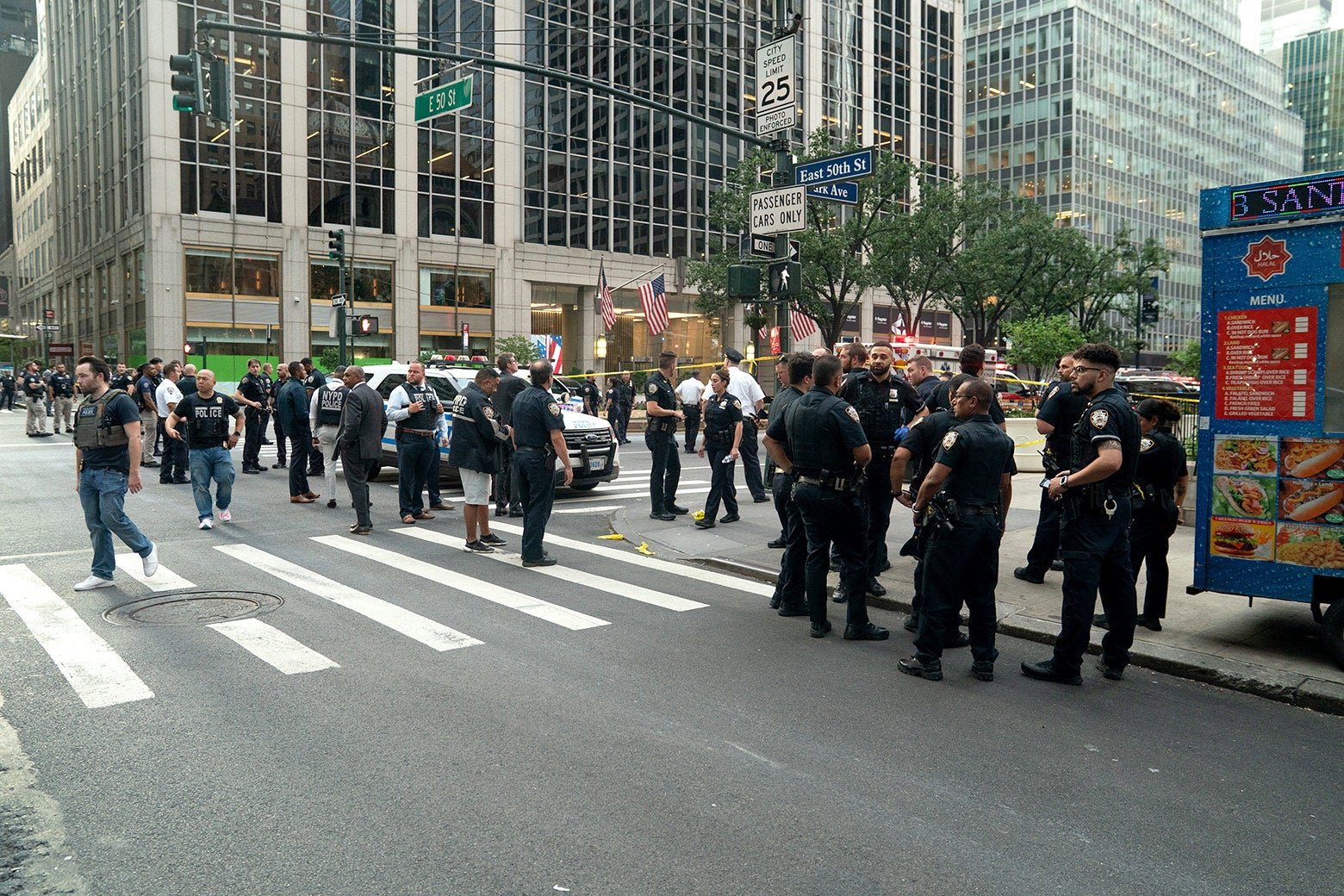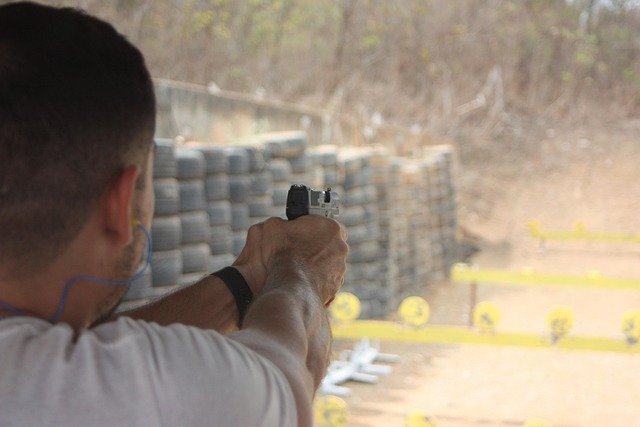Metropolis
New York Is Becoming America’s Stage for Statement Killings
From the UnitedHealthcare CEO to the NFL-targeted shooting, the Big Apple is turning into a magnet for out-of-state killers.
By
Henry Grabar
Enter your email to receive alerts for this author.
Sign in or create an account to better manage your email preferences.

Sign up for the Slatest to get the most insightful analysis, criticism, and advice out there, delivered to your inbox daily.
Last fall, Thomas Heatherwick’s 150-foot-tall, copper-clad monument known as the Vessel reopened in Manhattan’s Hudson Yards after three years of renovations. New visitors found the sculpture—inspired by an Indian stepwell and sometimes likened to a wastepaper basket or a shawarma—encased in metal mesh, as if to keep out pigeons. By all accounts, visiting the site from inside the chicken wire is a crimped and diminished experience. But Heatherwick and his patron Stephen Ross had come to see it as a necessary compromise after four people jumped to their deaths in the monument’s first three years.
It feels like Manhattan is undergoing a similar wave of violence after Monday evening’s mass shooting at a Midtown office building, in which a gunman from Las Vegas killed four people before taking his own life. Investigators say the man, who carried a note in which he claimed to have experienced football-induced brain damage, was targeting the headquarters of the National Football League in the building. He shot himself in the chest, not the head, and his suicide note concluded: “Study my brain. I’m sorry.”
Like Luigi Mangione, accused of killing UnitedHealthcare CEO Brian Thompson last fall outside a hotel a few blocks away, Monday’s killer appears to have channeled his personal suffering into a vigilante quest in New York City. The recent killings also bore a resemblance to a 2022 mass shooting on a subway train, committed, again, by someone who traveled to New York to kill people, though with a more muddled rationale. Together, the attacks seem to indicate a frightening trend in which New York City becomes a destination for acts of spectacular political violence.
Ending New York’s “year of lead” may not be as easy as putting up some wire mesh. On Tuesday, Manhattan’s corporate lobbies—typically showy affairs, with their Italian marble and mammoth art installations—were crowded by private security and police details. The city has spent the past quarter of a century in a cycle of attack and reaction: The bike lanes have been fortified (after a 2017 terrorist attack), the staircases lined with glow-in-the-dark tape (after 9/11), the cables of the Brooklyn Bridge mounted with spiny anti-climb guards (that time, it turned out to be performance art).
It’s not so easy to see what more can be done with a corporate lobby, with its endless daily cycle of visitors and deliveries. You already need to show a government ID to get upstairs, and some buildings no longer even have elevator buttons you can push (your temporary pass signals your destination to the elevator). Perhaps it will become normal to pass a guard with a gun on the way into the office of the New York Times, say, or Goldman Sachs, like entering a bank in a war-torn country.
This could have happened in any city (UnitedHealthcare is based in the suburbs of Minneapolis). But if even a few Americans feel that the misdeeds of big companies must be resolved through revenge killings, it’s a particular problem for a place that has more Fortune 500 headquarters than any other. The idea of a “contagion effect” for mass shootings—that extensive media coverage begets more incidents—is in dispute, but examples of explicit copycats are not hard to find.
In any case, New York is grappling not with the actual likelihood of anti-corporate vengeance, but with the perception that it can happen. Even casual consumers of crime statistics will know that New York is safer than most major U.S. cities, and that crime has fallen substantially from its pandemic-era highs. But the way people feel about safety is often divorced from data, in part because the things that make people feel uncomfortable (homeless people asking for change, public mental health crises) aren’t crimes, but also because some crimes so occupy our attention that they make the world feel more dangerous than it is.
Meanwhile, the question of New York City’s safety has become a national debate, because Republicans and their influencers are determined to paint American cities as hellholes and their residents as subhuman or racially inferior. The motivations for this are varied: Department of Transportation Secretary Sean Duffy can’t stop talking about how afraid he is of the subway, because this fearmongering supports his department’s attempt to strip away New York’s congestion pricing authority. Donald Trump has used urban crime as a justification for his deportation machine.
And a growing section of the online right seems to invoke tabloid crime stories as evidence of the uncivilized nature of a melting-pot society. “Was just in NYC all weekend with our family. Never felt safe. So many people in the city who don’t belong,” wrote the conservative influencer Charlie Kirk on X recently.
Who doesn’t belong, exactly? The American-born former high-school football star who drove from Las Vegas with an assault rifle, or the two security personnel he killed—one a New York City cop literally named Islam, the other a father of Haitian descent? For a police officer killed by a terrorist, Didarul Islam’s online fundraising has been slow going compared to, say, that of a white woman who was accused of calling a black child a racial slur.
Sen. John Kennedy of Louisiana seized the moment to call for a return to stop-and-frisk, the racist policing practice that former Mayor Bill de Blasio ended, with no adverse consequence, after taking office in 2014. But the fact that homegrown extremists from other states continue to make assassination pilgrimages to New York City is hardly a failing of the city’s own police force—sniffing out interstate terror plots is the job of federal law enforcement.
New York has never been tight about who belongs: You can claim status as a New Yorker from the moment you wake up here. But maybe the city doesn’t deserve blame for exerting its magnet pull on out-of-state murderers.
Get the best of news and politics
Sign up for Slate’s evening newsletter.


